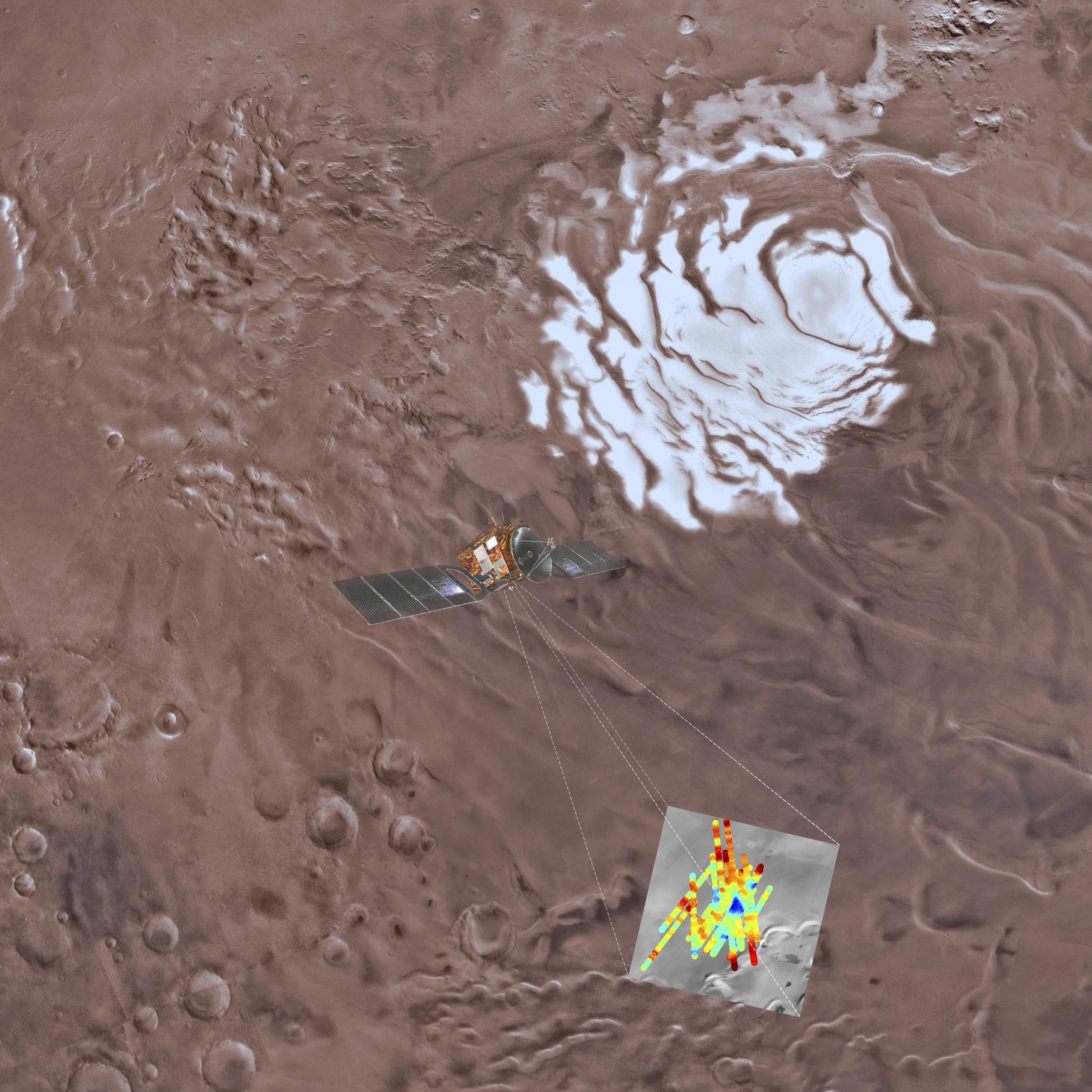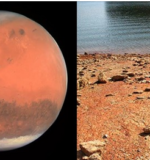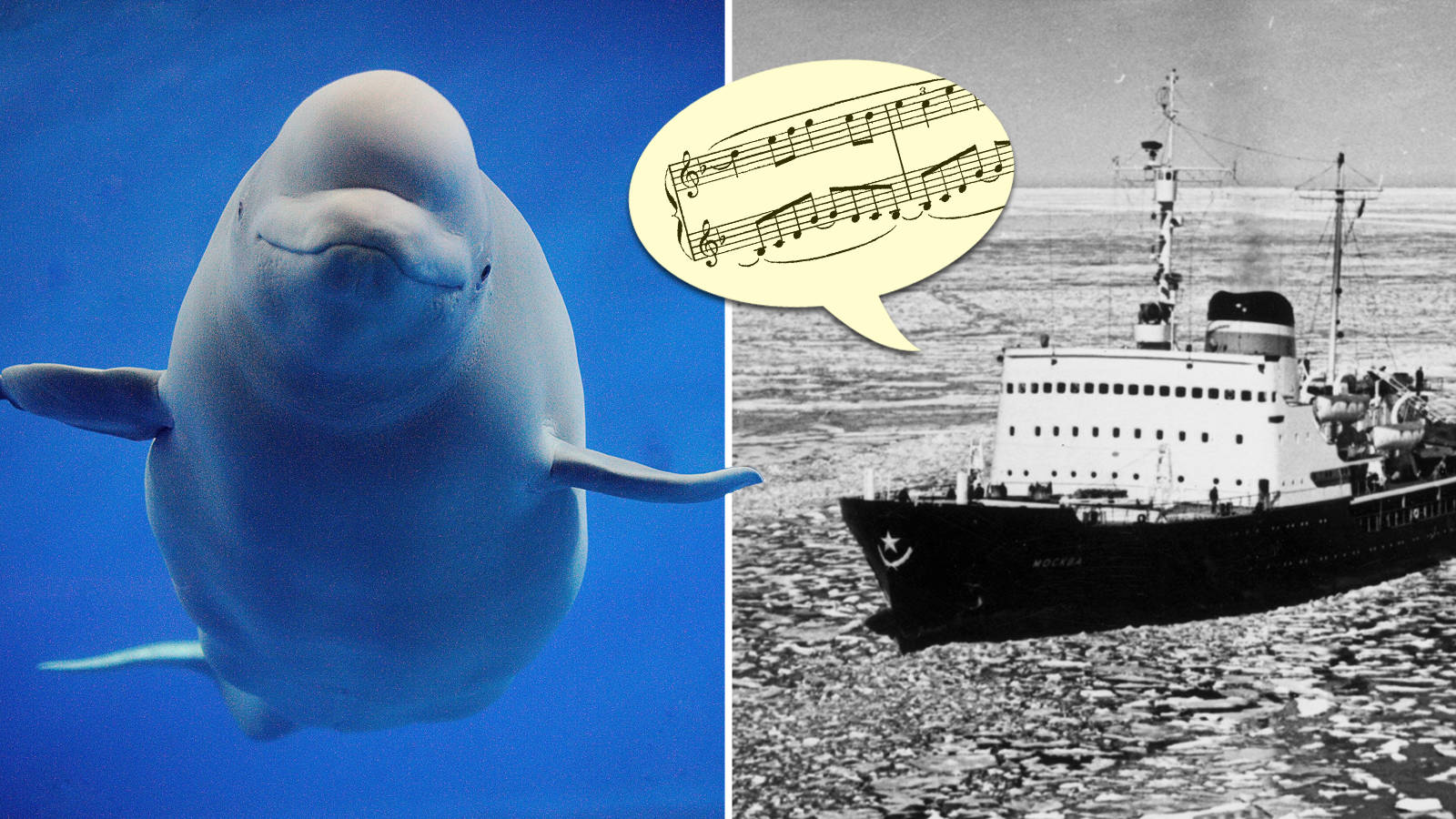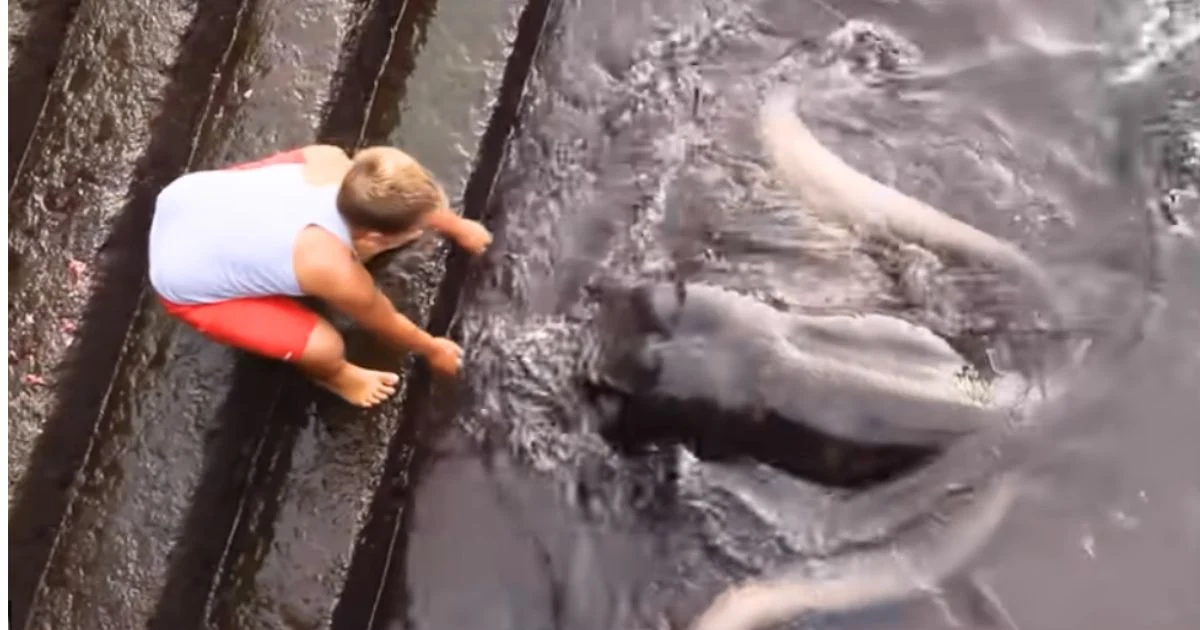
Researchers have found evidence of an existing body of water on Mars, according to the BBC.
The proposed ‘lake’ sits beneath the planet’s south polar ice cap, and is about 20km (12 miles) across.
Previous research found potential signs of intermittent liquid water flowing, but this is the first sign of a persistent body of water on the planet in the present day.
ITV reported that dissolved salts are thought to keep the water fluid, despite having a temperature below freezing point.
The discovery, which has major implications for the chances of life surviving on the Red Planet, was made by an orbiting European probe using ground-penetrating radar.

Apparently, the ‘lake’ lies about 1.5 kilometres (0.9 miles) beneath the surface of a region called Planum Australe, close to the Martian south pole.
With surface temperatures as low as minus 68C, it would not exist as a liquid under normal conditions.

Prof Roberto Orosei from the Italian National Institute for Astrophysics, who led the study, said: “It’s probably not a very large lake.
“This really qualifies this as a body of water. A lake, not some kind of meltwater filling some space between rock and ice, as happens in certain glaciers on Earth.”
The BBC reported that this means ‘nothing definite’ for life on the planet. Dr Manish Patel from the Open University explains: “We have long since known that the surface of Mars is inhospitable to life as we know it, so the search for life on Mars is now in the subsurface.
“This is where we get sufficient protection from harmful radiation, and the pressure and temperature rise to more favourable levels. Most importantly, this allows liquid water, essential for life.”

NASA handout of an artists impression of a Mars Reconnaissance Orbiter over the Martian surface. Credit: PA
Dr Patel told BBC News: “We are not closer to actually detecting life but what this finding does is give us the location of where to look on Mars. It is like a treasure map – except in this case, there will be lots of ‘X’s marking the spots.”
Dr Matt Balme from the Open University explained that the measurements need to be repeated elsewhere to look for ‘similar signals’.
He added: “Maybe this could even be the trigger for an ambitious new Mars mission to drill into this buried water-pocket – like has been done for sub-glacial lakes in Antarctica on Earth.”
Featured Image Credit: PA








 Photographer Finds Locations Of 1960s Postcards To See How They Look Today, And The Difference Is Unbelievable
Photographer Finds Locations Of 1960s Postcards To See How They Look Today, And The Difference Is Unbelievable  Hij zet 3 IKEA kastjes tegen elkaar aan en maakt dit voor zijn vrouw…Wat een gaaf resultaat!!
Hij zet 3 IKEA kastjes tegen elkaar aan en maakt dit voor zijn vrouw…Wat een gaaf resultaat!!  Scientists Discover 512-Year-Old Shark, Which Would Be The Oldest Living Vertebrate On The Planet
Scientists Discover 512-Year-Old Shark, Which Would Be The Oldest Living Vertebrate On The Planet  Hus til salg er kun 22 kvadratmeter – men vent til du ser det indvendigt
Hus til salg er kun 22 kvadratmeter – men vent til du ser det indvendigt  Nearly Frozen Waves Captured On Camera By Nantucket Photographer
Nearly Frozen Waves Captured On Camera By Nantucket Photographer  It’s Official: Astronomers Have Discovered another Earth
It’s Official: Astronomers Have Discovered another Earth  Meteorite That Recently Fell in Somalia Turns Out to Contain Two Minerals Never Before Seen on Earth
Meteorite That Recently Fell in Somalia Turns Out to Contain Two Minerals Never Before Seen on Earth  Superknepet – så blir snuskiga ugnsformen som ny igen!
Superknepet – så blir snuskiga ugnsformen som ny igen! 